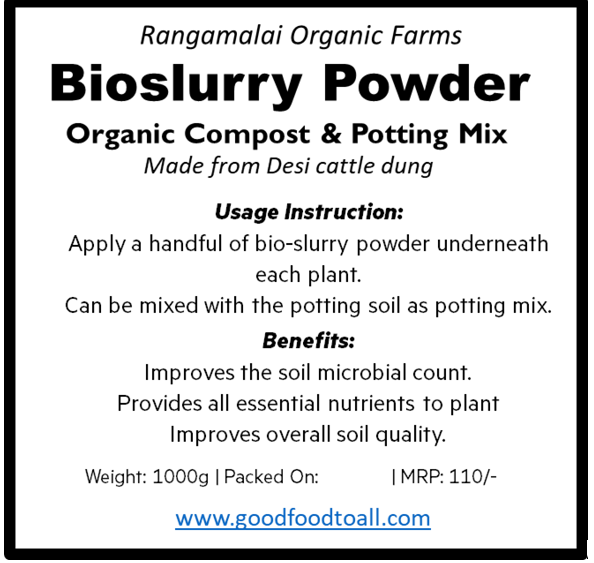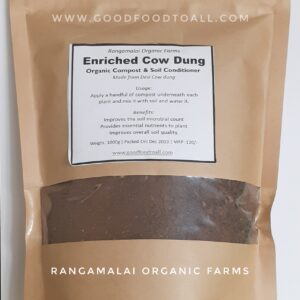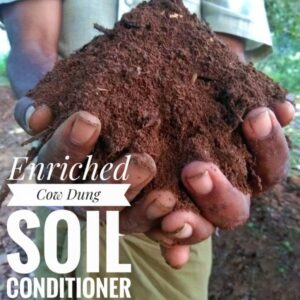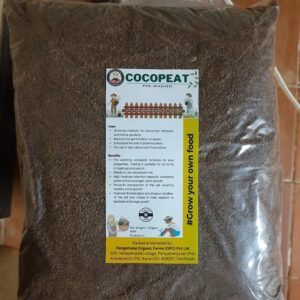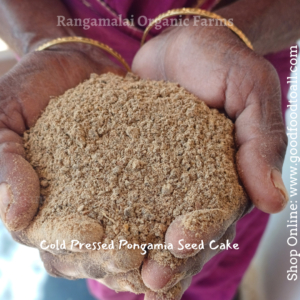Description
Bioslurry can be used for the following:
- As a basal manure and as a foliar application or spray.
- As a plague repellent.
- To increase soil fertility (caution exchange capacity), and improve the soil structure and water retaining capacity.
- To prevent soil erosion
- To treat seeds for higher germination, disease resistance, better yields, improved coloration of fruits and vegetables, and tenderness and taste of leafy vegetables
- To increase the feed value of fodder with low protein content
- For concentrated feed for cattle, pig, and fish and the production of earth worms and algae.
- For the production of vitamin B12 and amino acids for animal growth. In addition, it contains enzymes which stimulate hunger for more food intake and better nourishment of animals.
- As a means to increase quality and quantity of organic fertilizer production at the farm levels.
- As manure for pot grown flowers and vegetables.
- To increase the availability of nutrients for soil micro-flora like nitrogen fixing and phosphor solubilizing organisms
- To reduce and recycle the use of phosphate, a non-renewable source which is being depleted globally;
- To reduce wastewater, water pollution, greenhouse gas emissions and noxious odours.
- To reduce weed growth and to reduce attractiveness to insects or flies.
- Bioslurry reduces the number of pathogens through sanitation and as such, it is almost pathogen free. Although it does not always kill all pathogens, nematodes or viruses, they remain much lower than compared to FYM. Therefore, if applied to fruits and vegetables that are consumed fresh, those should be carefully washed and cleaned before consumption.
The bioslurry can be applied:
- As a foliar fertilizer, being sprayed onto the crops;
- In liquid form (diluted) onto the roots or in dry and composted form (combined with irrigation techniques so that crops have sufficient water).
- Bioslurry is an easily available form of compost compared to traditional compost. It is also attractive to mix with vegetative waste compost. A family owning a biogas plant will have the additional advantage, next to clean and cheap biogas, of a continuous and readily available supply of high quality fertiliser for crops

